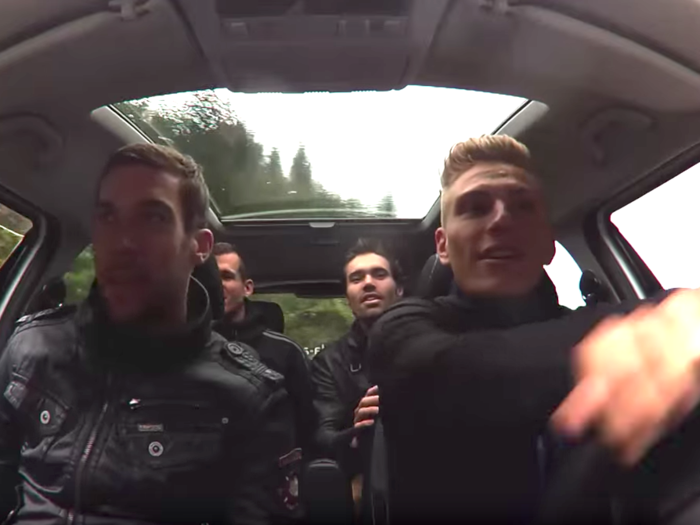Star Tour de France sprinter is a would-be 'computer nerd' who now earns $1.7 million racing bikes
Sprint race

Kittel won stage four of the Tour de France on Tuesday
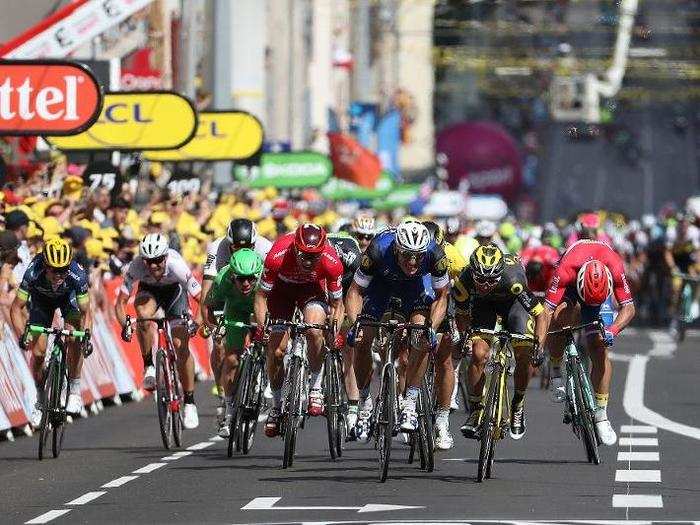
After missing out on at least two sprint stage wins earlier this Tour, Kittel, in blue, snagged stage four in a photo finish from France's Bryan Coucard, in black and yellow.
New kid on the block
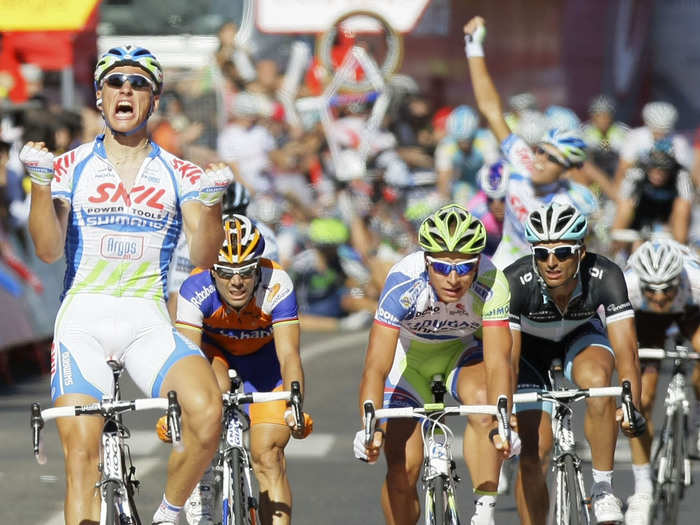
Kittel turned pro in 2011 and won nearly 20 races in his debut season. In 2012 he kept winning, and in 2013 he won bigger races, including a whopping four stages of the Tour de France.
Then in 2014, in his second Tour, he upset the favorites again to win four more stages. He was now without question cycling's fastest sprinter.
But his 2015 season was a set-back as the big German suffered from a persistent virus infection. His team that year decided not to bring him to the Tour, and not without controversy. The next season Kittel landed on a different team.
"Health is everything — also your key to success," he later said.
He bounced back in 2016 and has racked up several victories, including two dominant stage victories in May's Giro d'Italia, where he also wore the leader's jersey. And now he can add stage four of the 2016 Tour to his résumé.
Can't stop, won't stop
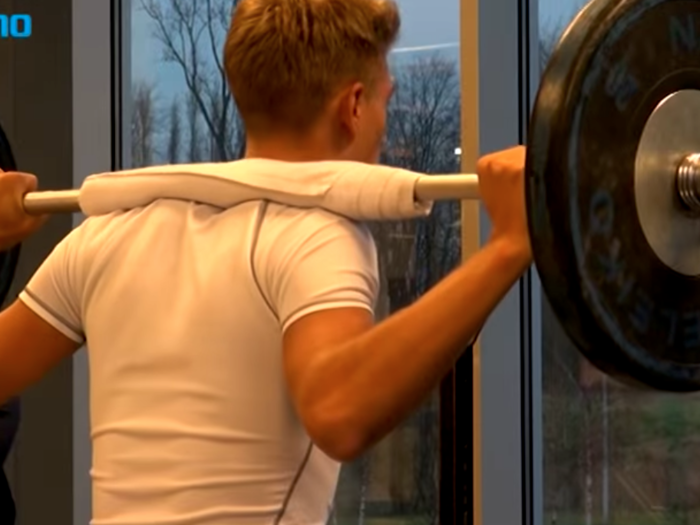
Kittel is 6-2, weighs 180 pounds, and has a BMI of 23.2.
In the off-season he hits the gym and does 265-pound squats.
"I work heavily on my sprints during endurance rides," he told Cyclist. "And in the winter I'm really busy in the gym, doing a lot of squats — around 120kg — and core workouts.
"The focus then is on high weights and low repetitions to build power output."
When asked about he developed his winning sprint, Kittel said:
"It starts in the gym, it finishes in your mind, but the real work is done out on the road."
The secret to the sprint
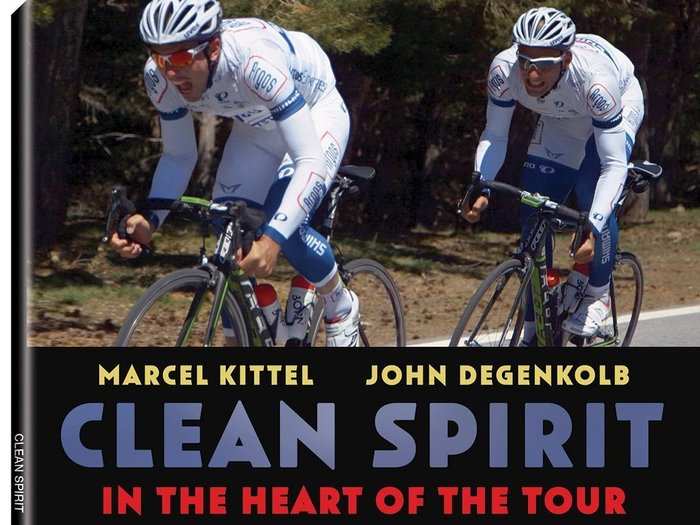
Like a number of pro cyclists, Kittel does not reveal his power data for fear that his rivals might gain an edge over him, as VeloNews reported.
According to one analysis, when he's kicking at full gas at the end of a five-hour stage in the Tour, he's likely pushing about 1,500 watts, watts being the measuring stick for sprinters.
In the documentary film "Clean Spirit," about the 2013 Tour, Kittel's teammate John Degenkolb half-jokes that Kittel produces 500 watts more than he does. That's saying something, as Degenkolb himself ranks among the world's top sprinters.
He picked the right parents
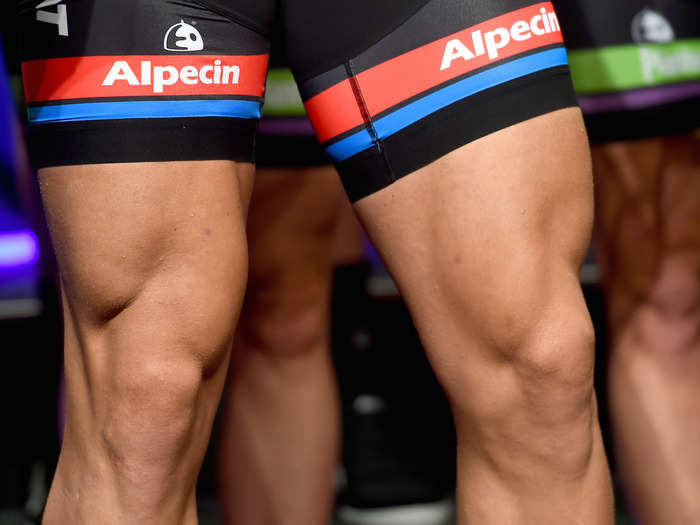
Kittel's father was a cyclist and taught him about bike handling, and his mother was an elite high jumper, he told Cyclist.
"I must thank my parents for good genes," Kittel says. "You can't achieve anything in this sport without the right DNA."
Kittel says he began cycling because of his father, who is still his biggest role model. His dad rode his first training kilometers with him.
Time trials
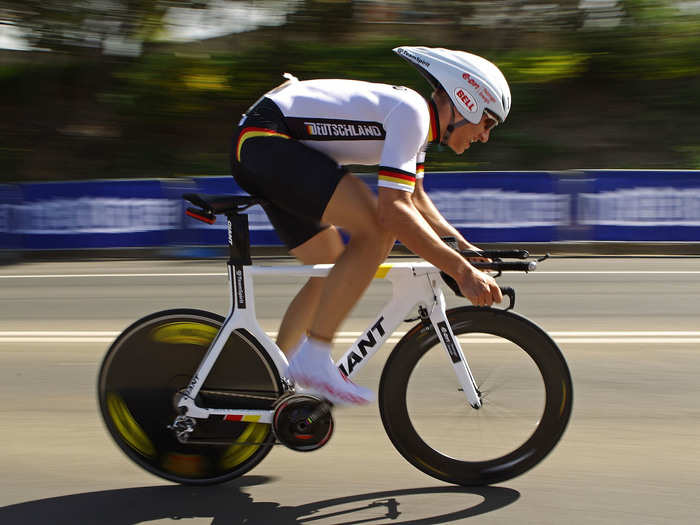
But before he became the world's fastest sprinter, he was a talented time-trial rider. As a junior, he won two world titles in the discipline.
Later, he started training as a lead-out rider, meaning in the big sprint finishes he rode for other designated sprinters on the team. But fairly quickly it was clear that he was very fast and had the potential to go even faster as a sprinter — and be a designated sprinter himself.
"It changed when I became pro," he told Cyclist. "I did not have the trust in myself as a sprinter, but from then on it's been a really good development."
Would-be 'computer nerd'
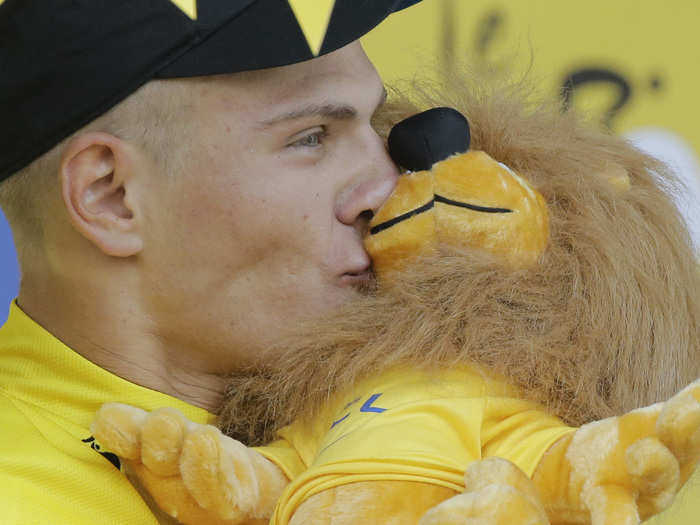
If Kittel hadn't made it as a pro bike racer, he says he'd probably be working in computers.
"When I signed my contract as a professional cyclist, until then I studied computer science. I would have become a computer nerd," he said. "I'm happy I became a cyclist."
His dad taught him how to lose
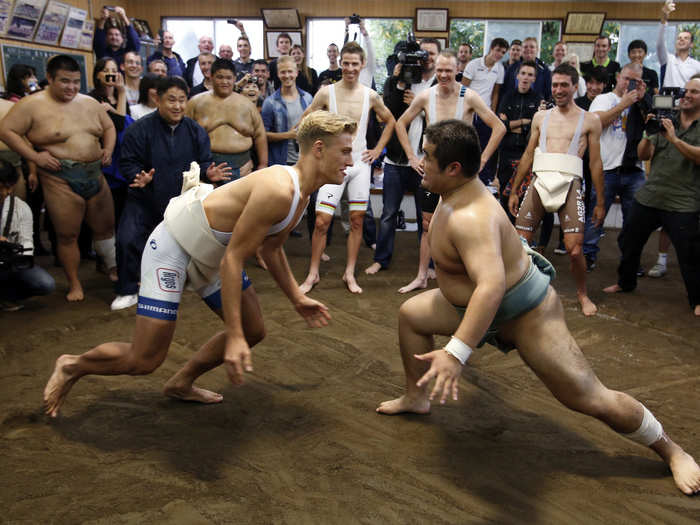
"Even from an early age, if I won I've managed to keep a level head," he told Cyclist. "My father taught me that, whichever race you do, do your best but don't put pressure on yourself to win.
"In many ways, he taught me how to lose, which is good because that happens a lot in cycling."
From the mountains to the road
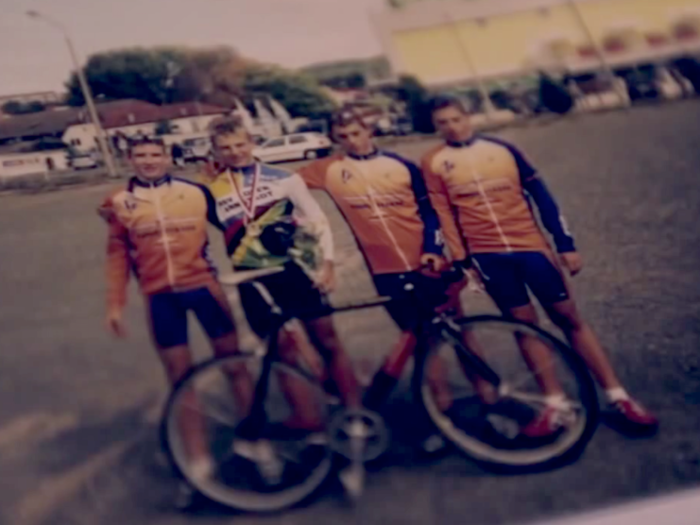
Kittel started out racing mountain bikes but soon switched to the road. He attended a sport school in the town of Erfurt, in central Germany, the same school that his mother, father, and brother all went to. He said the time spent at the sports school played a very important role in his ascension to the top of the sport.
Erfurt is the hotbed of German cycling; it has the world's oldest operational velodrome.
Carnivorous
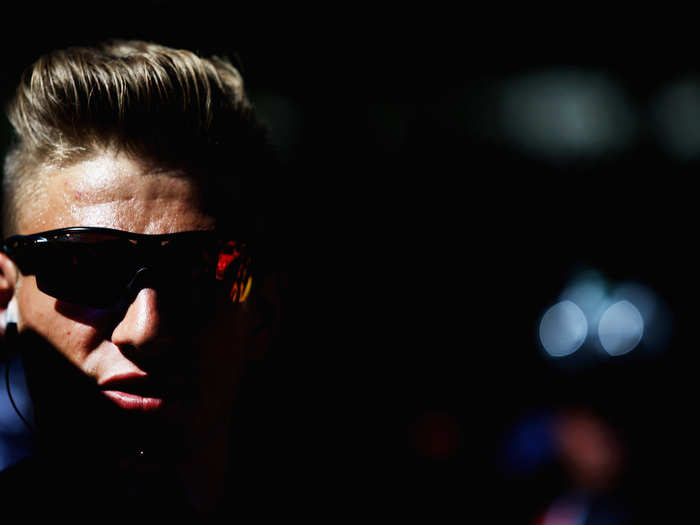
When it comes to nutrition, Kittel said that while it has always been part of his job, he didn't pay much attention to it until quite recently.
"I hate it when nutrition is a lot of work," he said. "I think it can be simply done with basic rules. That's what I want to achieve."
As Kittel told Cyclist, a monastic lifestyle just never came naturally.
"Strict schedules and nutrition plans cannot help me. It’s not who I am and doesn’t work. I can be strict for certain periods like in the build-up and during the Tour but if, for example, I want a slab of meat, I’ll have a slab of meat."
German lunch! :)) pic.twitter.com/6Ne8nUm8
— Marcel Kittel (@marcelkittel) September 3, 2012
Tough on antidoping
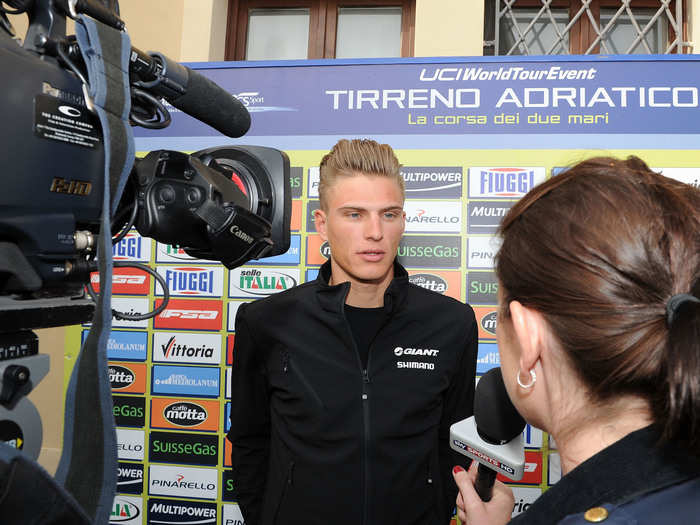
Kittel has said that athletes who dope should be thrown in jail.
"It is not only about doping — it is about money laundering, tax fraud, drug trafficking," he said, according to CyclingTips. "All that is crime, and if you are involved in it, I think it is absolutely normal to get a prison sentence in the end."
Rich man

Kittel earns an estimated $1.7 million a year racing his bike, a big salary for a pro cyclist.
His contract with the Etixx-Quick-Step team is said to worth 1.5 million euros annually.
That's good, too, as he has a penchant for nice cars and motorcycles.
With celebrity come endorsement deals

Kittel has appeared in several commercials, including one for a German mattress company.
On job hazards
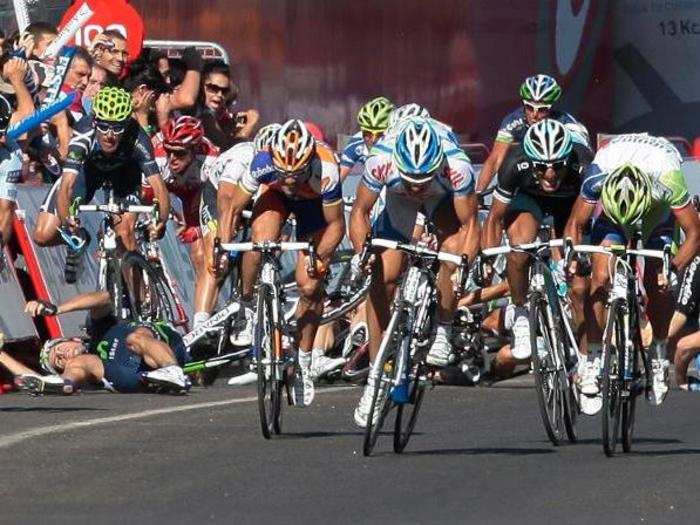
As for crashing, Kittel says it comes with the job.
He says it's actually better to crash at high speed, even at 40 mph, than at slower speeds, because when it's a slower crash lots more tends to go wrong.
For Kittel, crashing is part of the sport and pain is temporary. You learn to deal with it.
Still, even for Kittel, crashing can be frustrating.
Der Kaiser
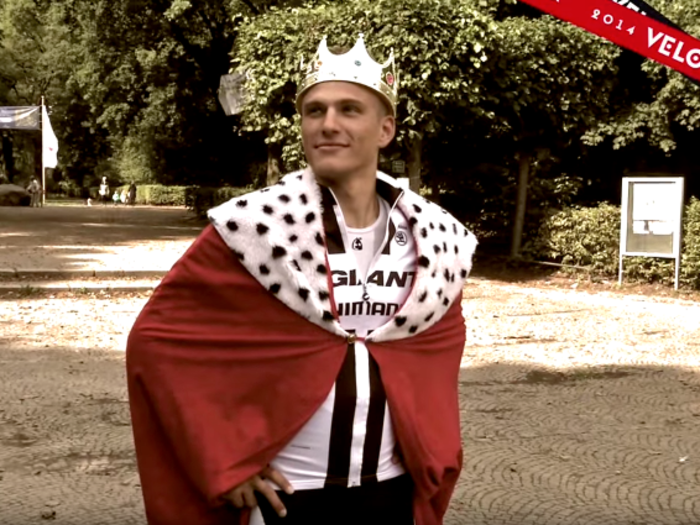
Kittel has been aptly hailed as "Kaiser Kittel."
He has yet to win the world championship road race, but it's probably just a matter of time.
One of his sweetest victories
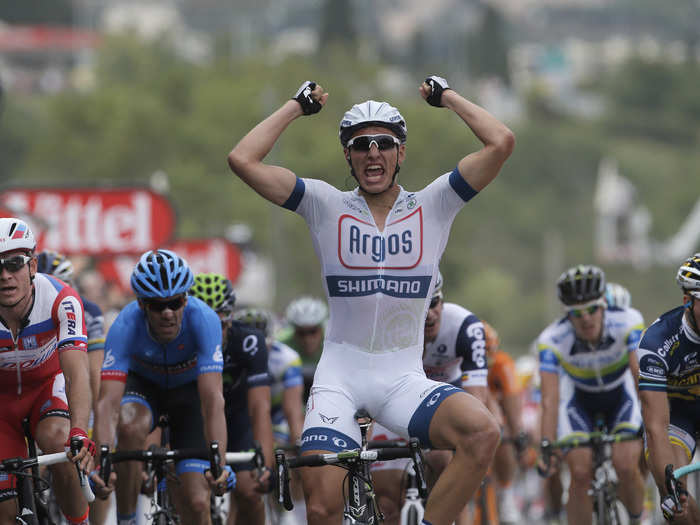
Kittel won the opening stage of the 100th Tour de France.
It was a special win for the rising star and his team, which had been built around him.
Every sprinter wanted to take that stage — badly. Kittel pulled it off.
Schnitzel king?
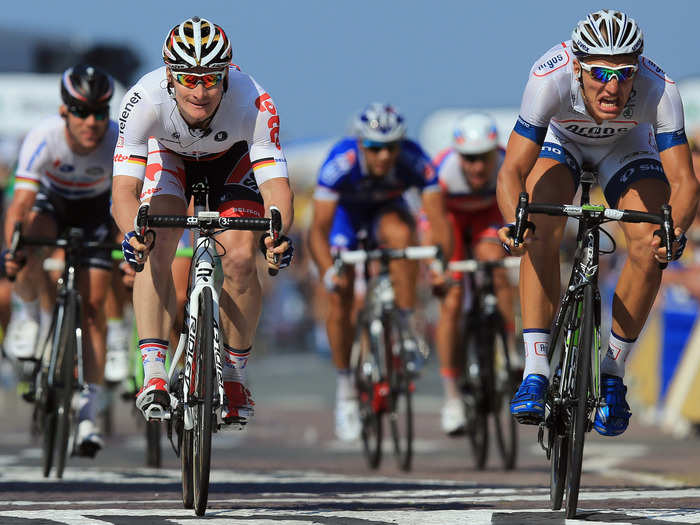
Kittel was once challenged to a schnitzel-eating contest against rival German sprinter André Greipel. It apparently never happened.
"I prefer to beat him in a sprint and not in a schnitzel contest," Kittel said, "but if we have to do it ... a win's a win, but you can have a really bad night after that."
James Dean of cycling
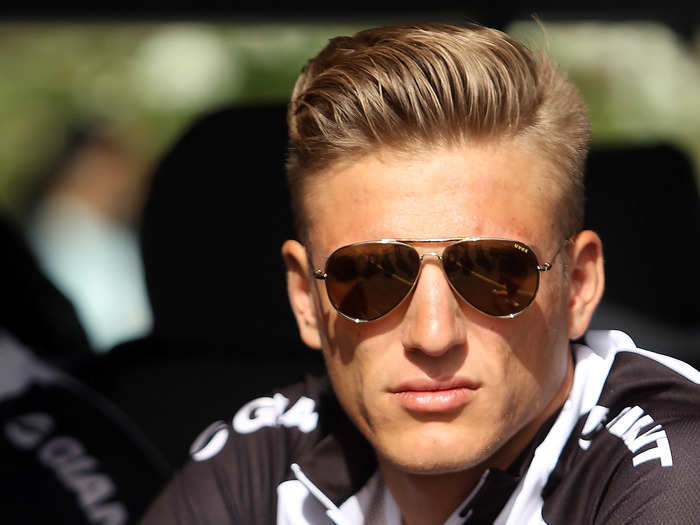
Fans often talk about Kittel's blond quiff.
He said it takes him 5 minutes to do his hair and that he uses a hair dryer.
People have been inspired by the "Kittel-cut."
The Kittel-Cut is so hot right now, even my 6-month-old daughters are jumping on the bandwagon. pic.twitter.com/dpVf2pY7y9
— Andy Guptill (@andyguptill) July 9, 2014
Hair-off

Well-coiffed American cycling star Taylor Phinney once challenged Kittel to a hair-off.
It is unclear if it happened or who won.
Before big hair
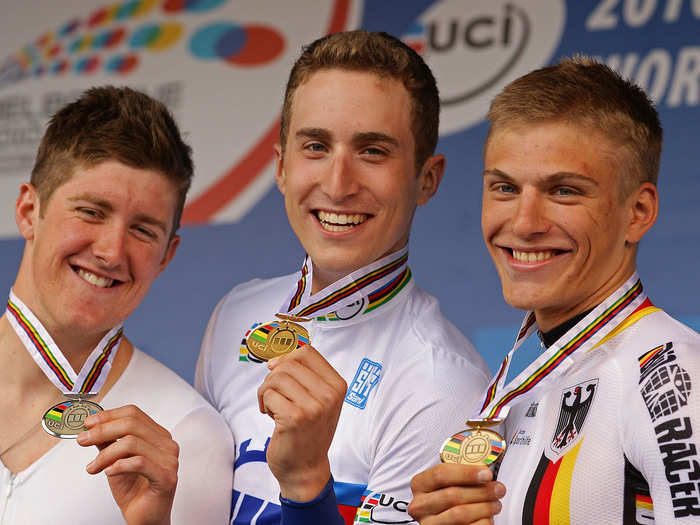
In 2010, Phinney and Kittel raced each other at the world championships in Australia in the under-23 men's time trial.
Phinney took gold and Kittel bronze. (Aussie Luke Durbridge won silver.)
That awesome feeling
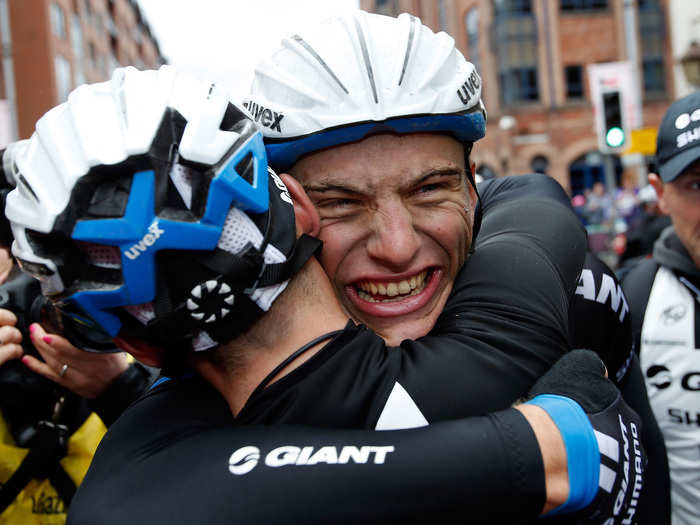
A journalist once asked Kittel, "How does it feel to be the fastest cyclist in the world?"
He replied: "Fastest? I don't now. I think I'm a good sprinter, and I think I have a really good team. It's a combination that makes me successful ... It feels really good, really awesome."
This is peak Kittel

So who will win the most sprint stages at this Tour?
So far it's Cavendish 2, Kittel 1.
Slovakia's Peter Sagan took the uphill sprint finish at Cherbourg and is always threatening to upset the pure sprinters.
Stay tuned.
Popular Right Now
Popular Keywords
Advertisement
